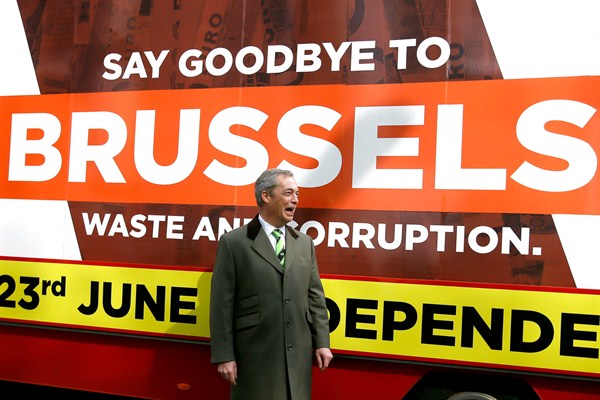The current era of democratic politics in the West is marked by dysfunction. Long-standing political institutions are creaking. The establishment consensus of free trade, economic openness and liberal migration policies that has buttressed the U.S.-led postwar liberal system is quickly losing its popular legitimacy. Since the late 1980s, electoral turnout has fallen in much of Europe; the joint vote share of center-right and center-left parties is hitting all-time lows; and various populist and anti-establishment parties have filled the void with the promise of easy solutions. At a time when the European Union is heavily criticized for being run by unelected technocrats, out of touch with ordinary people’s lives, a referendum to let the people have their say seems to many like the right way out of the contemporary democratic malaise.
When Prime Minister David Cameron promised the British people a say on whether the United Kingdom should leave or remain in the EU in January 2013, he did so for more cynical reasons. He hoped it would effectively kill the surging threat on his party’s right flank from the nationalist U.K. Independence Party and silence the many Euroskeptics in his own Conservative Party. He also wanted to put the Labour Party on the defensive by showcasing his own party’s support for more direct democracy.
Today, Cameron has gotten himself into a much bigger mess than he ever bargained for. The risk of an actual “Brexit,” or a British exit from the EU, is all too real, and the consequences for the Conservative Party are likely to be dire, even in the case of a close vote in favor of remaining in the EU.

